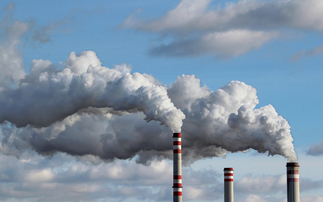With 151 days to go until a universal climate change deal, what should businesses be looking out for in the coming months
Meanwhile, there is a third group of businesses that will be following the detail of the talks closely, not only because of the long-term investment signals they will send, but because the near immediate impact they could have on their competitiveness. Fossil fuel majors, such as Shell or Total, or energy intensive industries such as the steel or cement sectors, will be watching closely to see how the commitments contained in the INDCs will translate into higher carbon costs or legislative restrictions on their carbon intensive operations.
These firms are divided into two groups: those who want to see a deal blocked at pretty much any costs for fear of the commercial damage it will do them; and the more progressive energy majors who support decarbonisation in principle but argue it should be done through a global deal that levels the playing field between different nations, especially if all countries committed to putting a price on carbon emissions. These businesses would like to see governments ensure any Paris deal includes a commitment to link up carbon markets and create a clear transparent single carbon market price.
Whittington reckons the group opposed to any form of deal is dwindling, but behind the scenes they remain active in lobbying governments not to impose taxes on polluters. Meanwhile, some green campaigners fear the call by some fossil fuel majors for a global carbon price represents a delaying tactic, given such an ambitious policy is unlikely to be agreed in Paris.
What is clear - and very different from the Copenhagen Summit in 2009 - is that much of the success of any Paris deal will come from a "bottom up" approach, with countries each determining what they feel they can best contribute towards a global deal.
One of the highlights of the Bonn Summit did not actually happen in Bonn at all, but down the road in Schloss Elmau, where leaders of the G7 called for an ambitious and inclusive Paris agreement that tracks progress towards targets and promotes ambitions over time. Crucially, they also backed ambitious plans for a new global target to deliver full decarbonisation of the world's economy later this century.
But Jonathan Grant, director of sustainability and climate change for the consultancy PwC, warned the G7 economies own pledges still fall short of what is needed - a scenario that could fuel charges of hypocrisy from poorer nations.
"Keeping to a two degrees budget requires average annual reductions in carbon intensity (or emissions per unit of GDP) of over six per cent each year according to the PwC Low Carbon Economy Index," he wrote in a recent analysis. "This compares with Paris targets equivalent to annual reductions of 3.1 per cent for Japan, 3.9 per cent for Canada and the EU and 4.1 per cent for the US (against one to two per cent per year currently). As emissions from the G7 represent an ever-decreasing portion of the global total, major emerging economies now need to declare their targets for Paris."
Grant says the Bonn talks also highlight how the divisions that mark the negotiations are not between G7 economies, but between rich and poorer nations. The biggest questions remain who should make the biggest greenhouse gas cuts and who should pay to help others reduce their emissions? It is the same over-arching question that has condemned the UN talks to such painfully slow progress over the past five years.
However, it is equally true that the talks are in a better place than they have been for many years, not least because so many of the key players are stepping up, rather than blocking, calls for greater ambition. "Now the negotiating text needs to catch up with the progress that is being made in bilateral discussions between countries and in other fora," he says. "The concern is that governments plan to agree a legal document in Paris and need time to get the language right. Doing this in the final hours of the summit in Paris risks weakening the agreement."
Thousands of businesses will gather in Paris in December looking for both policy detail and long-term investment signals. They will want to know how individual INDCs will impact their business, whether there are opportunities to be had from developing world climate funding and forest protections schemes, and whether a global carbon price and long term decarbonisation target are viable.
But for those businesses already committed to decarbonisation the most encouraging aspect of the talks is that they are designed to reinforce and build on national emissions targets and policies that are already in the pipeline.
This article is part of the BusinessGreen Paris Hub, hosted in association with PwC








